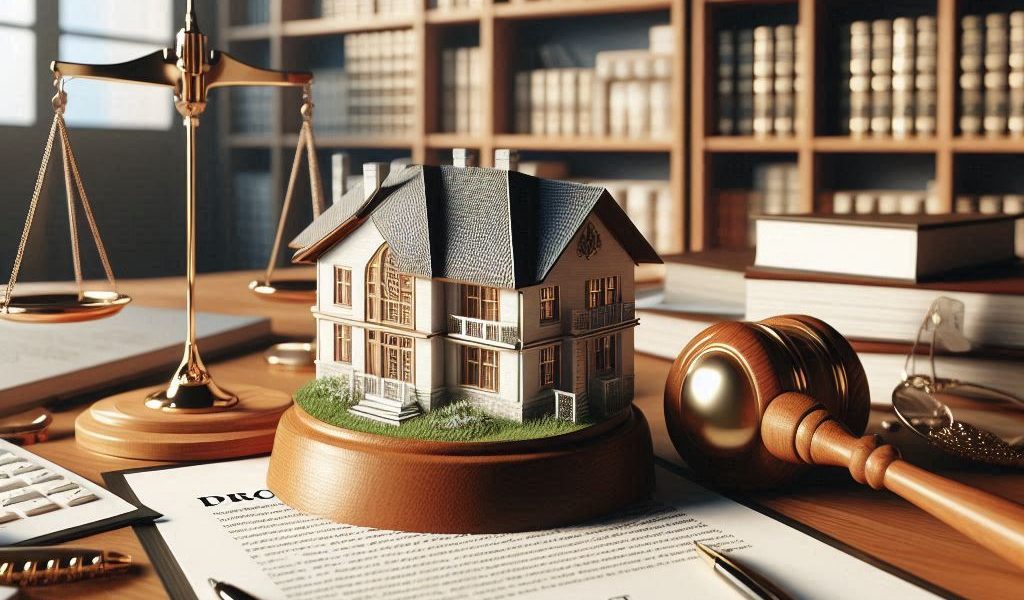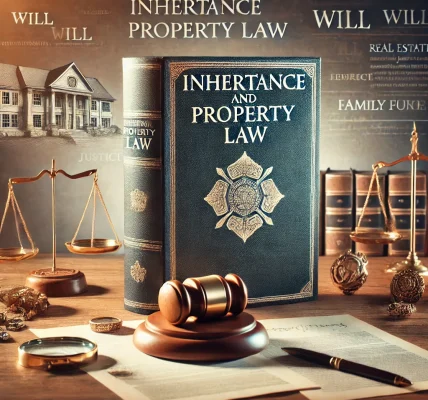Owning property is a significant milestone that comes with a range of legal rights and responsibilities. Property owners must understand their rights to ensure protection against disputes, encroachments, and fraudulent claims. This guide outlines the key legal rights of a property owner, the responsibilities that come with ownership, and how to safeguard property interests.
Understanding Property Ownership Rights
A property owner enjoys several rights that allow them to use, manage, and transfer their property legally. These rights vary based on jurisdiction and the type of property owned (residential, commercial, or agricultural).
1. Right to Ownership and Possession
One of the fundamental rights of a property owner is the right to possess and control their property. This means:
- The owner has exclusive control over their property.
- No one can trespass or occupy the property without permission.
- Ownership must be legally documented through title deeds and land records.
2. Right to Use the Property
The owner has the right to use the property as per their needs, provided they comply with zoning laws and regulations.
- Residential properties should not be used for commercial activities (unless permitted by law).
- Agricultural lands have specific usage restrictions based on local laws.
- Owners must follow environmental and land use regulations.
3. Right to Transfer or Sell the Property
Property owners have the legal right to transfer ownership to another person through sale, gift, or inheritance.
- A sale deed must be executed and registered.
- The buyer must verify the title and legal status before the transaction.
- Proper documentation ensures the legal transfer of ownership.
4. Right to Lease or Rent the Property
Property owners can lease or rent their property to tenants and receive rental income.
- A legally binding rental agreement must be drafted.
- The agreement should include terms like rent amount, duration, maintenance responsibilities, and eviction clauses.
- Owners must comply with landlord-tenant laws in their region.
5. Right to Mortgage the Property
Owners can use their property as collateral to secure loans from banks and financial institutions.
- A mortgage agreement must be signed and registered.
- Owners must ensure the mortgage is legally recorded to prevent fraudulent claims.
6. Right to Develop or Modify the Property
Property owners can make modifications or renovations to their property, subject to local regulations.
- Construction permits must be obtained before making structural changes.
- Property owners must comply with building codes and safety regulations.
7. Right to Seek Legal Protection
If a property owner’s rights are violated, they have the legal right to take action.
- Owners can file a case in court for property disputes.
- Legal action can be taken against encroachment, fraud, or illegal possession.
Responsibilities of a Property Owner
While property owners enjoy several rights, they also have responsibilities to ensure compliance with legal and civic obligations.
1. Paying Property Taxes
Owners must pay property taxes to local municipal authorities.
- Non-payment of property tax can lead to legal penalties.
- Tax payments ensure property ownership remains valid.
2. Maintaining the Property
Property owners must ensure that their property is well-maintained and does not cause harm to others.
- Regular maintenance prevents disputes and property damage.
- Negligence leading to accidents or harm can result in legal liability.
3. Complying with Zoning and Land Use Regulations
Property usage must align with local zoning laws.
- Violation of zoning laws can lead to legal action and fines.
- Before making modifications, owners should get approvals from authorities.
4. Preventing Encroachment and Illegal Occupation
Owners should safeguard their property against encroachment.
- Regularly inspect property boundaries.
- Take legal action if unauthorized persons occupy the property.
5. Ensuring Legal Documentation is Up to Date
Property documents must be legally valid and regularly updated.
- Keep title deeds, sale deeds, and tax receipts updated.
- Register all property transactions with the appropriate government authority.
Common Legal Issues Faced by Property Owners and How to Avoid Them
1. Property Title Disputes
Ownership conflicts may arise due to unclear or fraudulent titles. Solution: Always verify the title before purchase and keep ownership documents secure.
2. Encroachments
Neighbors or third parties may occupy part of the property without permission. Solution: Conduct land surveys and take legal action immediately if encroachment occurs.
3. Fraudulent Transactions
Fake documents can be used to illegally transfer or mortgage the property. Solution: Verify land records and register all transactions legally.
4. Tenant Disputes
Legal conflicts may arise if tenants refuse to vacate the property. Solution: Draft a detailed rental agreement and follow legal eviction procedures.
5. Delay in Property Registration
Failure to register property transactions can lead to legal complications. Solution: Always complete property registration immediately after purchase or transfer.
Legal Remedies for Property Owners
If a property owner faces legal disputes, they can seek remedies through:
1. Civil Lawsuits
- File a case in the civil court for ownership disputes.
- Seek a court order to resolve boundary or encroachment issues.
2. Police Complaints
- File a complaint if someone tries to illegally occupy or sell the property.
- Police action can prevent fraudulent transactions.
3. Alternative Dispute Resolution (ADR)
- Mediation and arbitration can help resolve disputes without lengthy court battles.
4. Government Authorities and Tribunals
- Land tribunals and municipal authorities can help resolve property disputes.
Conclusion
Being a property owner comes with multiple legal rights that provide control, security, and financial benefits. However, it is essential to be aware of responsibilities to avoid legal complications. By ensuring proper documentation, complying with local regulations, and seeking legal assistance when needed, property owners can safeguard their rights and investments.



